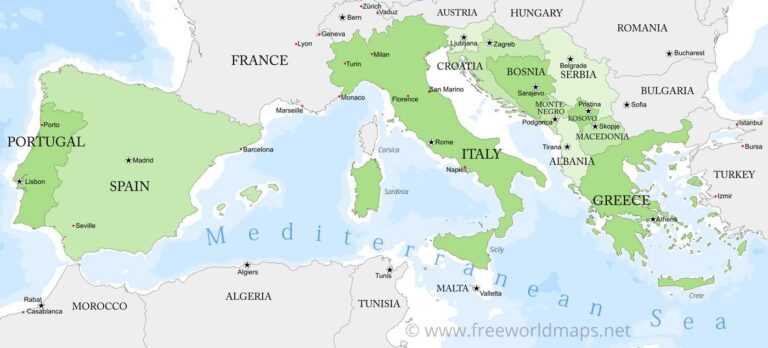Southern European Union member states have voiced strong opposition to the recently proposed France-UK migration deal, citing concerns over unequal burden-sharing and the potential impact on their already strained border management systems. The disagreement highlights growing divisions within the EU over how to handle migration flows following Brexit and increased arrivals across the Mediterranean. As France and the UK move forward with their bilateral agreement aimed at curbing irregular migration, southern capitals warn that without a coordinated European approach, frontline states will bear disproportionate responsibility for processing and housing migrants. This dispute adds a new layer of complexity to ongoing debates over migration policy within the bloc.
Southern EU States Criticize France UK Migration Deal Over Burden Sharing Concerns
Southern European nations have voiced strong objections to the recent migration agreement struck between France and the United Kingdom, expressing concerns that the deal fails to address equitable burden sharing across the European Union. Officials from Italy, Greece, and Spain highlight that the arrangement predominantly shifts responsibility onto border countries, leaving frontline states to manage rising migration flows with limited support. This stance underscores growing frustration among southern EU members who argue that the response to migration needs to be collective and coordinated rather than bilateral and unilateral.
- Disproportionate impact: Southern borders remain entry points for thousands annually.
- Lack of coordinated EU-wide framework: Fear of setting a precedent for selective partnerships.
- Demand for increased financial and logistical aid: Essential to manage humanitarian and security challenges.
| Country | Monthly Migrant Arrivals | Requested EU Support |
|---|---|---|
| Italy | 4,500 | Enhanced border control funds |
| Greece | 3,200 | Increased relocation quotas |
| Spain | 2,100 | Healthcare and shelter assistance |
EU policymakers now face mounting pressure to revisit the framework for migration management to ensure solidarity among member states. Southern nations insist that any future agreements must incorporate transparent burden sharing mechanisms and prioritize the principles of fairness and responsibility-sharing across the union.
Impact of France UK Agreement on Migration Flows in the Mediterranean Region
The recent accord between France and the United Kingdom aims to curb irregular migration by enhancing border controls and increasing joint maritime patrols in the Mediterranean. While proponents argue it strengthens security and reduces human trafficking, several Southern European nations have voiced concerns over its potential repercussions. Countries such as Italy, Greece, and Spain warn that the agreement may inadvertently push migratory flows further east or south, exacerbating the already critical humanitarian challenges these coastal states face.
Key points raised by Southern EU states include:
- The risk of creating new migration routes through less controlled areas, leading to higher risks for migrants.
- Increased pressure on frontline countries’ search and rescue operations, with limited EU-wide support.
- Lack of consultation and coordination with Southern member states, undermining regional cohesion on migration policy.
| Country | Estimated Migrant Arrivals (2023) | Concerns Regarding the Deal |
|---|---|---|
| Italy | 45,000 | Increased burden on rescue missions |
| Greece | 28,500 | Potential rise in Eastern Mediterranean routes |
| Spain | 22,000 | Insufficient EU support mechanisms |
Calls for Enhanced EU-Wide Solidarity and Coordinated Migration Management Strategies
Voicing strong opposition to the France-UK migration agreement, Southern European leaders emphasize the urgent need for EU-wide solidarity to tackle the growing migration challenge. Officials from countries facing the heaviest influxes call for a balanced and unified approach that shares responsibility fairly among member states, rather than bilateral deals that risk isolating frontline nations. This demand underscores the increasing frustration over current policies, which Southern states argue do little to alleviate the pressure on their resources and infrastructures.
To build a sustainable response, experts and policymakers advocate for coordinated migration management strategies incorporating:
- Equitable distribution of asylum seekers across the EU
- Streamlined border control mechanisms combined with humanitarian safeguards
- Enhanced support for integration and reception facilities in high-impact areas
| Country | Annual Migrant Arrivals | Current Reception Capacity | Requested EU Support |
|---|---|---|---|
| Greece | 45,000 | 30,000 | 15,000 places + financial aid |
| Italy | 38,000 | 25,000 | 12,000 places + increased border patrols |
| Spain | 20,000 | 15,000 | 5,000 places + integration programs |
Closing Remarks
As tensions persist between Southern European nations and the France-UK migration agreement, the dispute highlights the broader challenges facing the European Union in managing migration collectively. With Southern states expressing strong opposition, the coming weeks will be crucial in determining whether a unified approach can be reached or if divisions within the bloc will deepen. Stakeholders across Europe will be watching closely as this issue continues to unfold.




